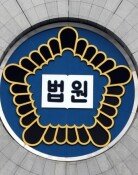Korea, with strong but small economy, faces another diplomacy test
Korea, with strong but small economy, faces another diplomacy test
Posted August. 30, 2024 07:51,
Updated August. 30, 2024 07:51
In April 2021, when U.S. President Joe Biden urgently summoned Samsung Electronics to the White House, it sent shockwaves through South Korea’s business community. The White House took action as American companies such as Ford and GM faced a global semiconductor shortage, gathering domestic and foreign semiconductor companies. This unprecedented call from the White House left Samsung scrambling to decide who would represent the company in place of the then-Vice Chairman Lee Jae-yong, who was on parole, and how to respond to the U.S. government's request.
This marked the beginning of a now-familiar concept: the Biden administration’s "economic security" reorganization. The U.S. economic security policies, prompted by the COVID-19 pandemic, global semiconductor shortages, and U.S.-China tensions, have had significant impacts on the South Korean economy and industry. Following the White House meeting, Samsung Electronics had to submit its supply chain data to the U.S. government. Major South Korean conglomerates such as Samsung, SK, Hyundai Motor, and LG began to shift their production bases to the U.S. on a large scale. This shift even altered South Korea’s long-standing trade structure, with the value of exports to the U.S. surpassing that to China in the first half of this year.
With less than 70 days remaining until the U.S. presidential election, South Korean industries have once again embarked on behind-the-scenes diplomatic efforts. Samsung, which announced its largest-ever investment plans in the U.S., spent a total of 3.54 million U.S. dollars on lobbying the U.S. government and Congress in just the first half of this year—the largest amount since 1998 when lobbying data was first tracked. According to a report released this month by OpenSecrets, a nonprofit organization that tracks lobbying expenditures in the U.S., all of South Korea’s top four conglomerates increased their lobbying spending by more than 10% compared to the same period last year.
The battle lines are also growing increasingly complicated. Not only must South Korean companies prepare for the risks associated with former President Donald Trump’s anti-environmental industry policies, but they must also closely monitor the pace of the clean energy transition being advocated by emerging candidate Kamala Harris. Above all, no matter which party wins the presidency, further regulatory measures against China are highly likely to be one of the first steps taken by the new administration as part of ‘solidifying its domestic footing.’
The issue is that South Korean companies could be caught in the crossfire at any moment. The industry is already taking action to survive, such as submitting petitions to the U.S. government regarding the China sanctions set to take effect this year. During the Inflation Reduction Act (IRA) and CHIPS Act negotiations, South Korean business leaders made numerous trips to the U.S., working behind the scenes to persuade American policymakers.
Even considering the inherent burdens of “small but strong nation diplomacy,” South Korea's diplomatic authorities and relevant ministries must not remain idle. They need to act swiftly and work alongside the business community. Last year, President Yoon Suk Yeol’s state visit to the U.S. led to a temporary reprieve for Samsung and SK from U.S. semiconductor equipment restrictions targeting China. However, the government’s delayed response to the IRA, which excluded South Korean electric vehicles from tax credits, remains a lingering disappointment. Three years have passed since Samsung was first summoned to the White House. It is not only the companies that are now being put to the test. The future of South Korea’s key industries and the nation’s economic security are also at stake.
Do-Young Kwak now@donga.com
Headline News
- N. Korea reveals HEU production facility for the first time
- Kimpo Airport suffers another Leak, just two weeks after repairs
- Court: First Lady’s brokerage accounts used for stock price manipulation
- Trump’s lies about immigrants eating dogs instigate bomb threat
- India’s first major leaguer Roker puts on ‘7K show’ in debut







